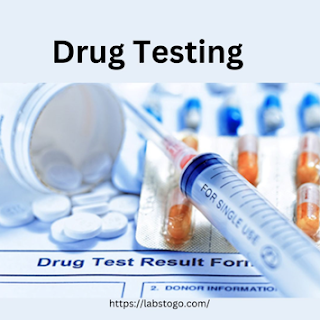Understanding Alcohol Testing: Methods, Importance, and Implications
Alcohol testing is a crucial tool in various settings, from workplaces to law enforcement, and even in personal health monitoring. Understanding how these tests work, why they are important, and the different methods available can help individuals and organizations make informed decisions.

Types of Alcohol Testing
Breath Alcohol Tests (Breathalyzers)
- How it Works: A person blows into a device that measures the alcohol concentration in their breath. The device calculates the Blood Alcohol Content (BAC) based on this measurement.
- Common Uses: Law enforcement use during traffic stops, workplace testing, and personal monitoring.
- Advantages: Quick, non-invasive, and provides immediate results.
Blood Alcohol Tests
- How it Works: A blood sample is analyzed in a lab to determine the BAC.
- Common Uses: Legal and medical settings where precise BAC measurement is necessary.
- Advantages: Highly accurate and reliable.
Urine Alcohol Tests
- How it Works: Tests detect the presence of alcohol metabolites in the urine, indicating alcohol consumption.
- Common Uses: Workplace testing and clinical settings.
- Advantages: Can detect alcohol use over a longer period than breath tests.
Saliva Alcohol Tests
- How it Works: A saliva sample is analyzed for alcohol content.
- Common Uses: Workplace testing and roadside screening.
- Advantages: Non-invasive, easy to administer, and provides rapid results.
Hair Alcohol Tests
- How it Works: A small sample of hair is tested for ethyl glucuronide (EtG) and fatty acid ethyl esters (FAEE), which are markers of alcohol consumption.
- Common Uses: Long-term monitoring, often used in legal cases and rehabilitation programs.
- Advantages: Can detect alcohol use over a longer period (up to 90 days).
Importance of Alcohol Testing
Workplace Safety
- Ensures a safe working environment, particularly in industries involving heavy machinery, transportation, and public safety.
- Helps prevent accidents and injuries due to alcohol impairment.
Law Enforcement
- Enforces DUI laws and helps reduce alcohol-related road accidents.
- Provides evidence in legal cases involving alcohol consumption.
Health and Rehabilitation
- Monitors individuals in recovery from alcohol addiction.
- Assists healthcare providers in creating effective treatment plans.
Legal Compliance
- Helps organizations comply with regulations and standards regarding alcohol consumption.
- Reduces the risk of legal liabilities associated with alcohol-related incidents.
Implications and Considerations
Accuracy and Reliability
- Different testing methods vary in accuracy and reliability. Blood tests are considered the most accurate, while breath and saliva tests are less invasive but may have higher margins of error.
Privacy and Ethics
- Conducting alcohol tests, especially in the workplace, raises privacy concerns. It’s important to balance safety and privacy by ensuring tests are conducted fairly and transparently.
Legal and Social Impact
- Positive alcohol tests can have significant legal and social consequences, including job loss, legal penalties, and social stigma. It’s crucial to handle results sensitively and provide support for individuals who test positive.
Technological Advances
- Continuous advancements in alcohol testing technology are improving accuracy, reducing invasiveness, and making it easier to conduct tests in various settings.
Conclusion
Alcohol testing plays a vital role in promoting safety, health, and legal compliance. By understanding the different methods and their implications, individuals and organizations can use these tools effectively and responsibly. Whether for personal health monitoring, ensuring workplace safety, or enforcing legal standards, alcohol testing remains a critical component in managing alcohol-related risks.



Comments
Post a Comment